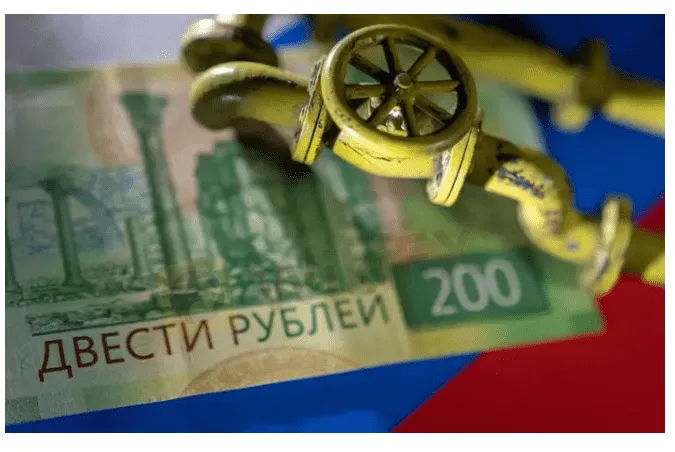简体中文
繁體中文
English
Pусский
日本語
ภาษาไทย
Tiếng Việt
Bahasa Indonesia
Español
हिन्दी
Filippiiniläinen
Français
Deutsch
Português
Türkçe
한국어
العربية
Asian gas buyers puzzle over Putins demand for payment in roubles
Abstract:Asian importers of Russian gas were scrambling on Thursday after Russian President Vladimir Putin said “unfriendly” countries must pay for Russian gas in roubles, in the latest jolt to global energy markets after Moscows invasion of Ukraine.

Japan, South Korea and Taiwan were on the list of countries deemed unfriendly. They all import liquefied natural gas (LNG) from the Sakhalin-2 and Yamal LNG projects in eastern Russia.
Putin said on Wednesday that Russia, which calls its actions in Ukraine a “special military operation”, would continue to supply gas in volumes and prices fixed in contracts but would require payment in Russian roubles.
Japan, the biggest importer of Russian LNG in Asia, had no idea how Russia would enforce that requirement.
“Currently, we‘re looking into the situation with relevant ministries as we don’t quite understand what (Russias) intention is and how they would do this,” Finance Minister Shunichi Suzuki said in parliament.
Japan imported 6.84 million tonnes of LNG from Russia in 2021, according to Refinitiv trade flow data, making up nearly 9% of its LNG imports.
JERA, Japan‘s biggest LNG buyer, has not received any notification from Sakhalin Energy, the joint venture that operates Sakhalin-2, to change the currency of payment from the U.S. dollar, a company spokesperson said. The spokesperson added that the country’s biggest power generator will keep gathering information.
A thermal power and fuel joint venture between Tokyo Electric Power Company Holdings and Chubu Electric Power, JERA buys about 2 million tonnes a year (tpy) of LNG from the Sakhalin-2 project under long-term contracts, according to Japan Oil, Gas and Metals National Corporations (JOGMEC) data.
Tokyo Gas and Osaka Gas, the countrys two biggest local gas suppliers, also were checking details on the rouble requirement, company spokespersons said on Thursday.
Tokyo Gas, one of Japans largest LNG buyers, declined to comment on any details of its long-term contract for 1.1 million tpy with Sakhalin Energy, including what currency it can use for payment.
Sakhalin Energy is 50% owned by Russia‘s Gazprom, with Shell holding a 27.5% stake while the rest is held by Japan’s trading companies Mitsui & Co and Mitsubishi Corp. Shell said on Feb. 28 that it would quit the project and the Japanese government has said Shell‘s exit did not impact Japan’s energy imports.
Mitsui and Mitsubishi are checking details of the Russias announcement, their spokesmen said.
Graphic: Asias Russian LNG imports: https://graphics.reuters.com/UKRAINE-CRISIS/RUSSIA-GAS-PUTIN/mopanbkoeva/chart.png
OTHER BUYERS
South Korea, Asia‘s third-largest importer of Russian LNG, expected to be able to continue imports, with the country’s Financial Services Commission saying it would do whatever was necessary to facilitate trade.
Korea Gas Corp (KOGAS) said it imports about 2 million tpy of Russian LNG, making up about 6% of the companys imports. However, KOGAS does not transact directly with Russia as its purchase contract is with Sakhalin Energy and payments for the gas go into a Japanese bank in Singapore, it added.
“Since we are making payments to that Japanese bank, we are not currently seeing issues now, but we are closely monitoring the development,” a KOGAS official said.
Taiwans economy ministry said state-owned CPC Corp has one gas shipment arriving from Russia at the end of this month.
It said they had received “no news that the payment system will be adjusted”.
The call for payments in roubles was seen as Putins way of trying to shore up the rouble, which has collapsed after the imposition of sanctions on Russia.
Putin said the government and central bank had one week to come up with a solution on moving operations into the Russian currency and that Gazprom would be ordered to make the corresponding changes to contracts.
However the move is unlikely to work for Moscow, said Eswar Prasad, a trade policy professor at Cornell University.
“Foreign importers would no doubt be happy to pay for their purchases of Russias exports in a currency that is collapsing in value, although getting access to roubles in a manner that does not fall afoul of sanctions could be tricky,” Prasad said.
Getting paid in roubles would do little to secure the hard currencies Russia needs to prop up its currencys value in global markets or pay for imports from other countries, he added.

Disclaimer:
The views in this article only represent the author's personal views, and do not constitute investment advice on this platform. This platform does not guarantee the accuracy, completeness and timeliness of the information in the article, and will not be liable for any loss caused by the use of or reliance on the information in the article.
Read more

Good News Malaysia: Ready for 5% GDP Growth in 2025!
Malaysia's economy is on track to sustain its robust growth, with GDP expected to exceed 5% in 2025, according to key government officials. The nation's economic resilience is being driven by strong foreign investments and targeted government initiatives designed to mitigate global economic risks.

Tradu Introduces Tax-Efficient Spread Betting for UK Traders
Tradu’s introduction of tax-efficient spread betting and groundbreaking tools like the Spread Tracker signals a new era of accessible, competitive, and innovative trading solutions for UK investors.

Trading Lessons Inspired by Squid Game
The popular series Squid Game captivated audiences worldwide with its gripping narrative of survival, desperation, and human nature. Beneath the drama lies a wealth of lessons that traders can apply to financial markets. By examining the motivations, behaviours, and strategies displayed in the series, traders can uncover valuable insights to enhance their own approach.

How Far Will the Bond Market Decline?
Recently, the yield on the U.S. 10-year Treasury bond reached a new high since April 2023, soaring to 4.7%.
WikiFX Broker
Latest News
SQUARED FINANCIAL: Your Friend or Foe?
Big News! UK 30-Year Bond Yields Soar to 25-Year High!
High-Potential Investments: Top 10 Stocks to Watch in 2025
Why Is Nvidia Making Headlines Everywhere Today?
Discover How Your Trading Personality Shapes Success
US Dollar Insights: Key FX Trends You Need to Know
FINRA Charges UBS $1.1 Million for a Decade of False Trade Confirmations
BI Apprehends Japanese Scam Leader in Manila
Bitcoin in 2025: The Opportunities and Challenges Ahead
Join the Event & Level Up Your Forex Journey
Currency Calculator






